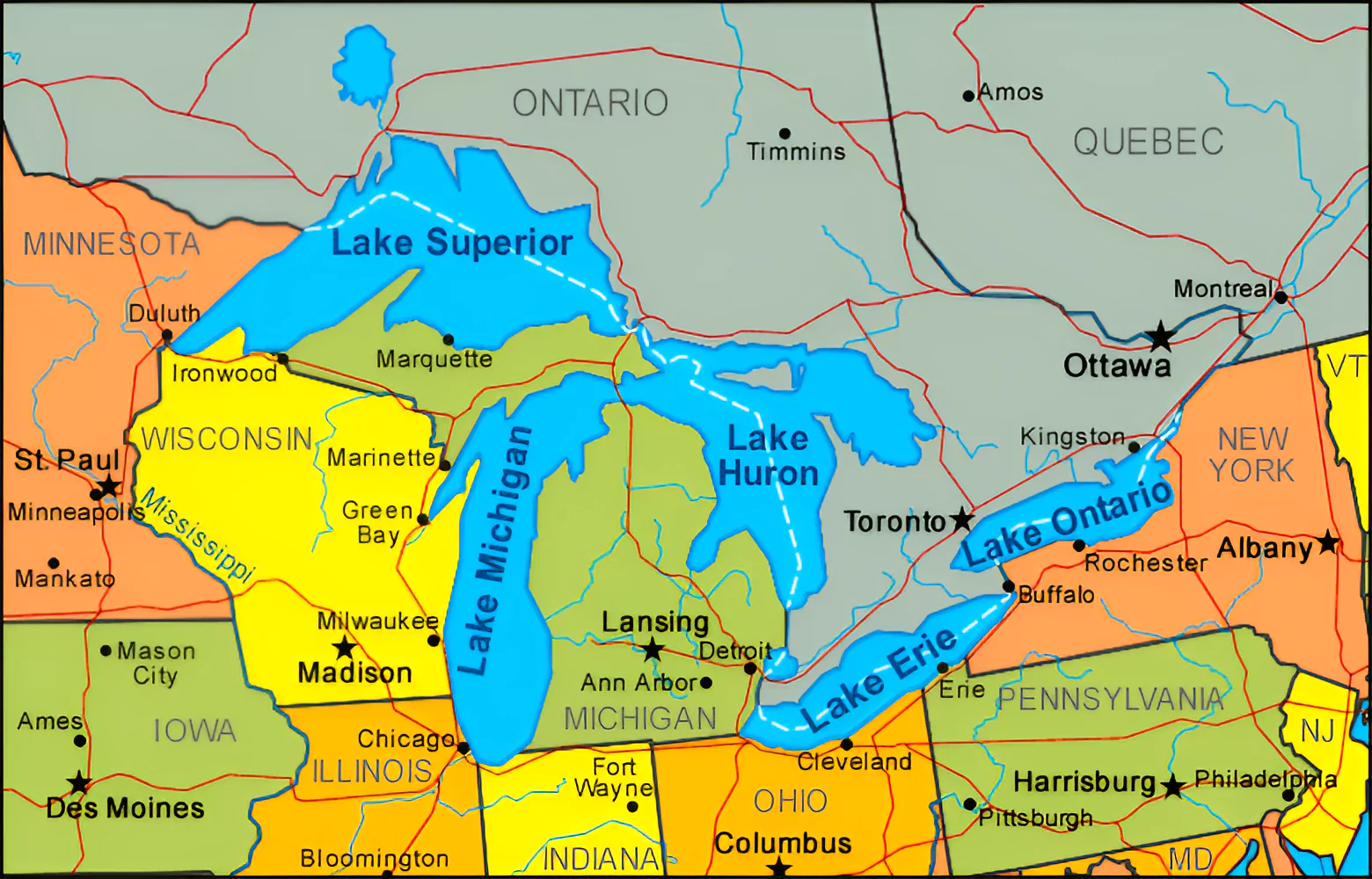![]() 5 Mar 2024
5 Mar 2024
The Great Lakes ecosystem have for the second consecutive year recorded a below average ice cover as per the National Oceanic & Atmospheric Administration (NOAA).
 It connects to the Atlantic Ocean via the Saint Lawrence River.
It connects to the Atlantic Ocean via the Saint Lawrence River.
About National Oceanic & Atmospheric Administration (NOAA)
|
|---|
News source: DTE
| Must Read | |
| NCERT Notes For UPSC | UPSC Daily Current Affairs |
| UPSC Blogs | UPSC Daily Editorials |
| Daily Current Affairs Quiz | Daily Main Answer Writing |
| UPSC Mains Previous Year Papers | UPSC Test Series 2024 |
<div class="new-fform">
</div>